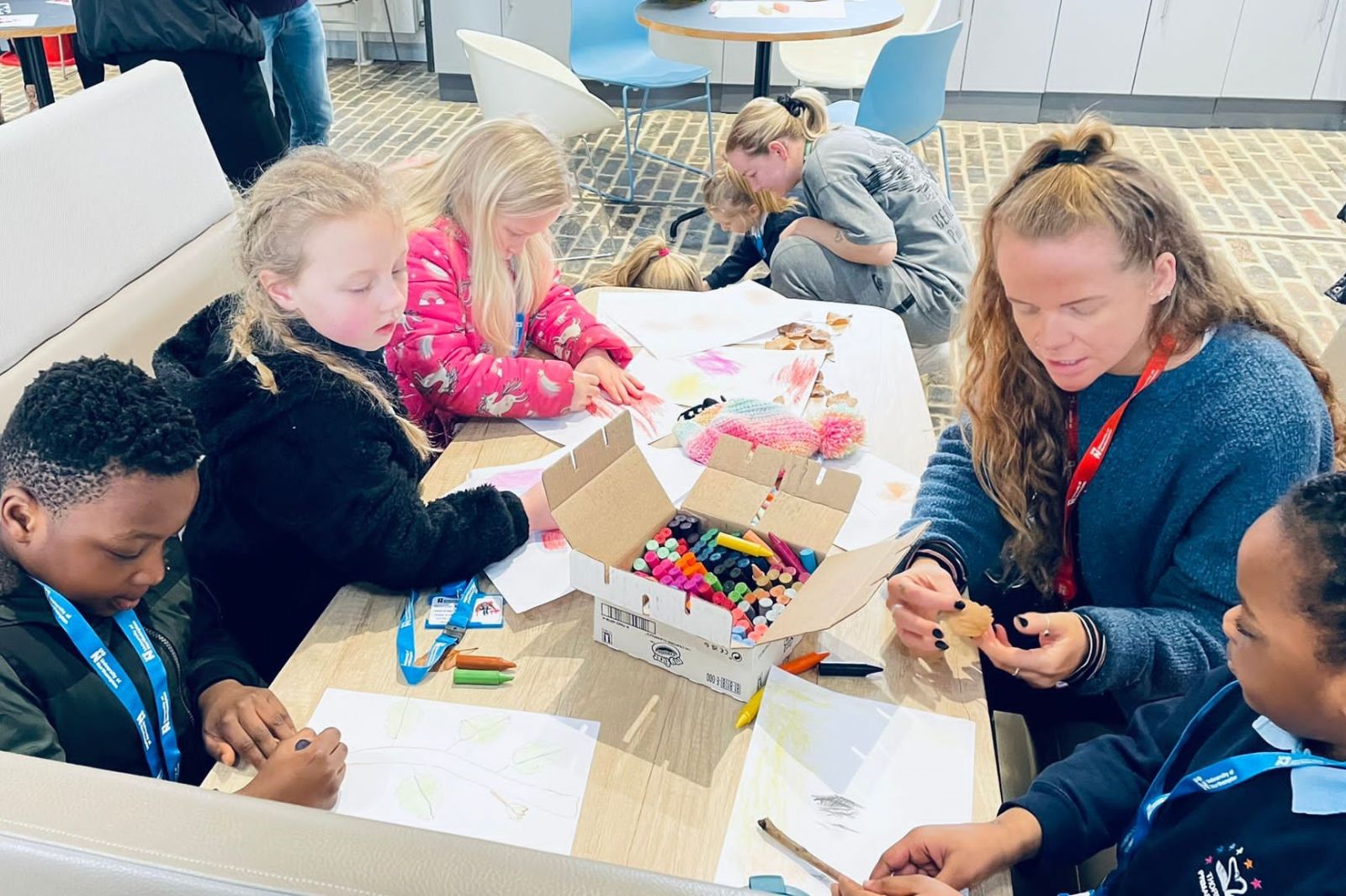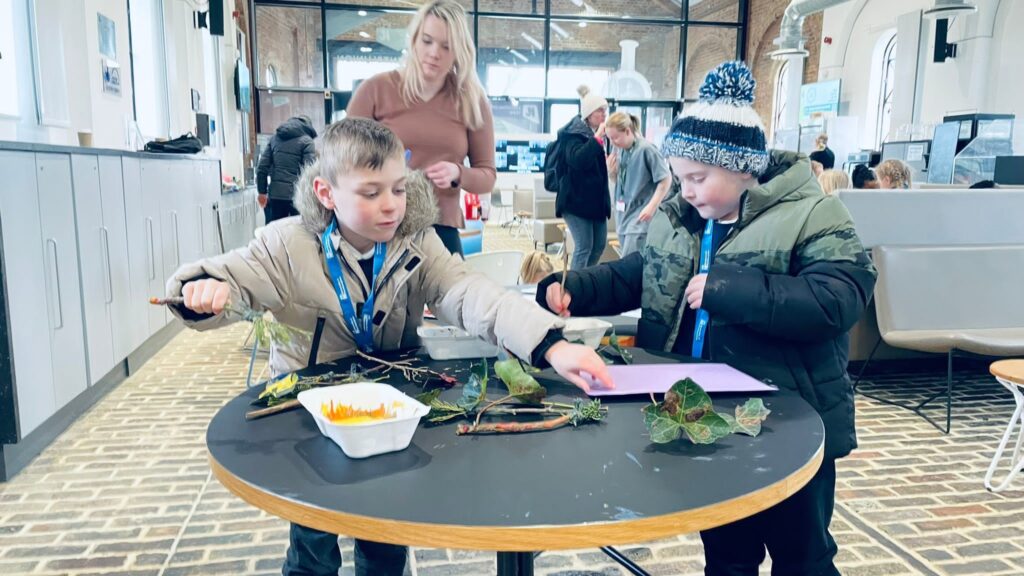‘Snow’ problem for primary school children taking a class at Waterside
Date 10.03.2023

University of Northampton (UON) again hosted its youngest ‘students’ when local primary school children took lessons at Waterside this week (Wednesday 8 March).
A class from Thorplands Primary spent the morning exploring their emotions and mindfulness with creative activities inspired by The Tell-me Tree book.
The book helps children aged between 4 and 8 to talk about their feelings, whether happy or sad, through conversations, writing and drawing as they ‘talk’ with title character.
These special lessons follow a similar idea held last year but with a new set of creative tasks that included making clay faces, dream catchers, fairy gardens, mandalas (Hindu and Buddhist a symbolic diagrams) from natural materials, and painting with mud.
Although snowfall meant the outside learning was partly done inside at the Students’ Union, the children still had fun as they were supervised by UON Childhood and Youth students making this a truly mutual learning experience.

Daniela Dean, class teacher for year 2, said “The children had a lovely time in spite of the inclement weather. The students arranged a beautiful day for us and the class couldn’t wait to share their experiences with everyone back at school.”
Bethany Jones is in the third year of her degree and adds: “Having the children on campus was an enriching and insightful experience. It was rewarding and reassuring to observe their enthusiasm and watch them get involved in the activities wholeheartedly.
“Despite the snow and cold weather, we were able to adapt and bring most activities inside. It was interesting to see how each child interpreted the same activity differently. Overall, the morning was a success and the children enjoyed themselves and the activities we had prepared, and felt confident to engage with us, despite only just meeting and being in an unfamiliar environment. It has also been interesting to see how some of the theories and approaches that we have learnt on this module, can be observed and applied in practice, which is something we can reflect on moving forward.”
